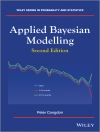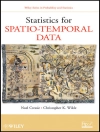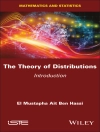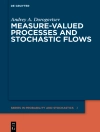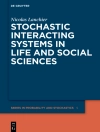Introduces the fundamentals of probability, statistics, decision theory, and game theory, and features interesting examples of games of chance and strategy to motivate and illustrate abstract mathematical concepts
Covering both random and strategic games, Probability, Decisions and Games features a variety of gaming and gambling examples to build a better understanding of basic concepts of probability, statistics, decision theory, and game theory. The authors present fundamental concepts such as random variables, rational choice theory, mathematical expectation and variance, fair games, combinatorial calculus, conditional probability, Bayes Theorem, Bernoulli trials, zero-sum games and Nash equilibria, as well as their application in games such as Roulette, Craps, Lotto, Blackjack, Poker, Rock-Paper-Scissors, the Game of Chicken and Tic-Tac-Toe. Computer simulations, implemented using the popular R computing environment, are used to provide intuition on key concepts and verify complex calculations.
The book starts by introducing simple concepts that are carefully motivated by the same historical examples that drove their original development of the field of probability, and then applies those concepts to popular contemporary games. The first two chapters of Probability, Decisions and Games: A Gentle Introduction using R feature an introductory discussion of probability and rational choice theory in finite and discrete spaces that builds upon the simple games discussed in the famous correspondence between Blaise Pascal and Pierre de Fermat. Subsequent chapters utilize popular casino games such as Roulette and Blackjack to expand on these concepts illustrate modern applications of these methodologies. Finally, the book concludes with discussions on game theory using a number of strategic games. This book:
* Features introductory coverage of probability, statistics, decision theory and game theory, and has been class-tested at University of California, Santa Cruz for the past six years
* Illustrates basic concepts in probability through interesting and fun examples using a number of popular casino games: roulette, lotto, craps, blackjack, and poker
* Introduces key ideas in game theory using classic games such as Rock-Paper-Scissors, Chess, and Tic-Tac-Toe.
* Features computer simulations using R throughout in order to illustrate complex concepts and help readers verify complex calculations
* Contains exercises and approaches games and gambling at a level that is accessible for readers with minimal experience
* Adopts a unique approach by motivating complex concepts using first simple games and then moving on to more complex, well-known games that illustrate how these concepts work together
Probability, Decisions and Games: A Gentle Introduction using R is a unique and helpful textbook for undergraduate courses on statistical reasoning, introduction to probability, statistical literacy, and quantitative reasoning for students from a variety of disciplines.
قائمة المحتويات
Preface xi
Acknowledgments xv
About the Companion Website xvii
1 An Introduction to Probability 1
1.1 Whati s Probability? 1
1.2 Odds and Probabilities 5
1.3 Equiprobable Outcome Spaces and De Méré’s Problem 6
1.4 Probabilities for Compound Events 9
1.5 Exercises 12
2 Expectations and Fair Values 15
2.1 Random Variables 15
2.2 Expected Values 16
2.3 Fair Value of a Bet 19
2.4 Comparing Wagers 19
2.5 Utility Functions and Rational Choice Theory 23
2.6 Limitations of Rational Choice Theory 24
2.7 Exercises 26
3 Roulette 31
3.1 Rules and Bets 31
3.2 Combining Bets 37
3.3 Biased Wheels 38
3.4 Exercises 42
4 Lotto and Combinatorial Numbers 45
4.1 Rules and Bets 45
4.1.1 The Colorado Lotto 45
4.1.2 The California Superlotto 51
4.2 Sharing Profits: De Méré’s Second Problem 52
4.3 Exercises 55
5 The Monty Hall Paradox and Conditional Probabilities 59
5.1 The Monty Hall Paradox 59
5.2 Conditional Probabilities 62
5.3 Independent Events 65
5.4 Bayes Theorem 66
5.5 Exercises 70
6 Craps 75
6.1 Rules and Bets 75
6.1.1 The Pass Line Bet 75
6.1.2 The Don’t Pass Line Bet 84
6.1.3 The Come and Don’t Come Bets 85
6.1.4 Side Bets 85
6.2 Exercises 86
7 Roulette Revisited 89
7.1 Gambling Systems 89
7.1.1 Martingale Doubling Systems 89
7.1.2 The Labouchère System 92
7.1.3 D’Alembert Systems 94
7.2 You are a Big Winner! 96
7.3 How Long will My Money Last? 97
7.4 Is This Wheel Biased? 101
7.5 Bernoulli Trials 102
7.6 Exercises 103
8 Blackjack 107
8.1 Rules and Bets 107
8.2 Basic Strategy in Blackjack 109
8.3 A Gambling System that Works: Card Counting 114
8.4 Exercises 117
9 Poker 121
9.1 Basic Rules 121
9.2 Variants of Poker 123
9.3 Additional Rules 124
9.4 Probabilities of Hands in Draw Poker 124
9.4.1 The Effect of Card Substitutions 127
9.5 Probabilities of Hands in Texas Hold’em 128
9.6 Exercises 132
10 Strategic Zero-Sum Games with Perfect Information 135
10.1 Games with Dominant Strategies 135
10.2 Solving Games with Dominant and Dominated Strategies 139
10.3 General Solutions for Two Person Zero-Sum Games 143
10.4 Exercises 144
11 Rock-Paper-Scissors: Mixed Strategies in Zero-Sum Games 147
11.1 Finding Mixed-Strategy Equilibria 148
11.2 Mixed Strategy Equilibria in Sports 152
11.3 Bluffing as a Strategic Game with a Mixed-Strategy Equilibrium 153
11.4 Exercises 159
12 The Prisoner’s Dilemma and Other Strategic Non-zero-sum Games 161
12.1 The Prisoner’s Dilemma 161
12.2 The Impact of Communication and Agreements 162
12.3 Which Equilibrium? 164
12.4 Asymmetric Games 168
12.5 Exercises 171
13 Tic-Tac-Toe and Other Sequential Games of Perfect Information 175
13.1 The Centipede Game 175
13.2 Tic-Tac-Toe 178
13.3 The Game of Nim and the First- and Second-Mover Advantages 181
13.4 Can Sequential Games be Fun? 184
13.5 The Diplomacy Game 184
13.6 Exercises 187
A A Brief Introduction to R 191
A. 1 Installing R 191
A. 2 Simple Arithmetic 192
A. 3 Variables 194
A. 4 Vectors 195
A. 5 Matrices 199
A. 6 Logical Objects and Operations 201
A. 7 Character Objects 204
A. 8 Plots 205
A.9 Iterators 208
A.10 Selection and Forking 211
A.11 Other Things to Keep in Mind 211
Index 213
عن المؤلف
ABEL RODRÍGUEZ, PHD, is Professor in the Department of Applied Mathematics and Statistics at the University of California, Santa Cruz (UCSC), CA, USA. The author of 40 journal articles, his research interests include Bayesian nonparametric methods, machine learning, spatial temporal models, network models, and extreme value theory.
BRUNO MENDES, PHD, is Lecturer in the Department of Applied Mathematics and Statistics at the University of California, Santa Cruz, CA, USA.







